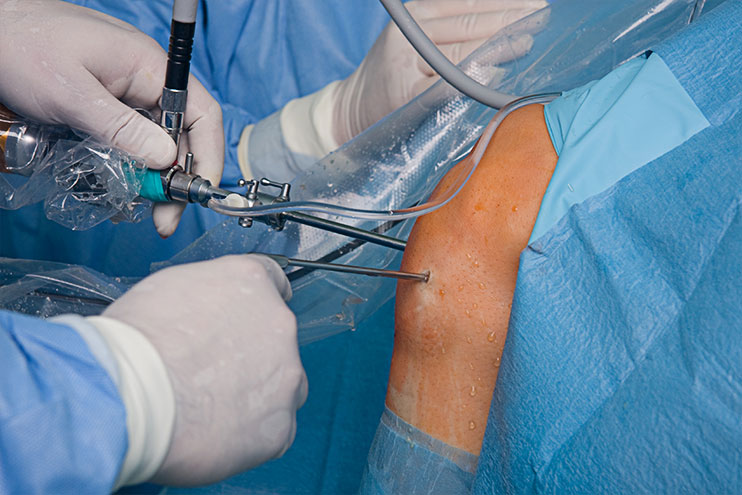Knee Replacement in Nashik

Knee Replacement
Knee pain can severely affect your mobility and quality of life. When conservative treatments fail to relieve discomfort, Knee Replacement in Nashik offers a highly effective solution to restore movement, reduce pain, and help you get back to an active lifestyle.
At our hospital, we specialize in advanced knee replacement procedures performed by skilled orthopedic surgeons using modern technology for precision and faster recovery.
What Is Knee Replacement Surgery?
Knee replacement (also known as knee arthroplasty) is a surgical procedure that involves removing damaged parts of the knee joint and replacing them with artificial components made of metal or plastic. The goal is to relieve pain and improve joint function, particularly in patients suffering from severe arthritis or injury-related knee damage.
When Do You Need a Knee Replacement?
You may be advised to undergo Knee Replacement in Nashik if you experience:
- Persistent knee pain even at rest
- Difficulty walking, climbing stairs, or bending the knee
- Severe joint stiffness and swelling
- Deformity of the knee (bow-legged or knock-knee)
- Limited mobility despite medications and physiotherapy
Early consultation helps prevent worsening of joint damage and ensures better recovery outcomes.
Types of Knee Replacement Surgery
1. Total Knee Replacement (TKR)
The entire knee joint is replaced with artificial components, suitable for patients with widespread arthritis.
2. Partial Knee Replacement (PKR)
Only the damaged part of the knee is replaced, preserving healthy bone and tissue. This is ideal for patients with damage confined to one area of the knee.
3. Robotic or Computer-Assisted Knee Replacement
This advanced technique improves accuracy and alignment, leading to faster recovery and longer implant life.
Procedure Overview
- Pre-Surgery Evaluation – Includes physical exams, X-rays, and blood tests to assess joint health.
- Anesthesia – Administered to ensure a pain-free procedure.
- Removal of Damaged Bone and Cartilage – The surgeon carefully removes worn-out portions of the knee joint.
- Implant Placement – Artificial components are positioned precisely to replicate natural movement.
- Recovery and Rehabilitation – Early mobilization, physiotherapy, and guided exercises help restore strength and flexibility.
Benefits of Knee Replacement Surgery
- Significant reduction in knee pain
- Improved mobility and flexibility
- Ability to perform daily activities comfortably
- Long-lasting results (implants typically last 15–20 years)
- Enhanced quality of life and independence
Post-Surgery Care and Recovery
After Knee Replacement in Nashik, patients receive customized rehabilitation plans that include:
- Pain management and wound care
- Guided physiotherapy sessions
- Regular follow-up assessments
- Diet and exercise recommendations for joint health
Following the post-surgery plan helps ensure a faster and smoother recovery.
Why Choose Us for Knee Replacement in Nashik
- Experienced orthopedic surgeons and joint replacement specialists
- Advanced modular operation theatres and precision tools
- Use of high-quality implants and robotic-assisted technology
- Comprehensive pre- and post-operative rehabilitation programs
- Personalized care focused on long-term joint health
Frequently Asked Questions (FAQ)
Most patients can resume daily activities within 6–8 weeks, with complete recovery taking 3–6 months depending on overall health and rehabilitation.
Yes, knee replacement is a safe and well-established procedure with high success rates when performed by experienced orthopedic surgeons.
Modern knee implants can last 15–20 years or more, depending on lifestyle, activity level, and post-surgery care.
Total knee replacement replaces the entire joint, while partial replacement targets only the damaged portion, preserving healthy tissue.
Yes, bilateral knee replacement is possible and is recommended in selected cases for convenience and efficiency in recovery.
If knee pain persists for more than a few weeks despite rest, medication, or therapy, it’s time to consult a specialist for a detailed evaluation.

